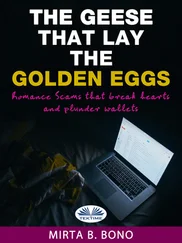‘Is that all?’ Bianchini asked, making no attempt to disguise the surprise in his voice and on his face.
‘I think so. What I’m supposed to do is safeguard the mayor’s reputation.’
‘My, my, my,’ Bianchini said with a smile, ‘how very delicate our politicians are becoming. Next thing you know, they’ll be committing hara-kiri if they’re caught with their hands in the till.’
‘I think that’s only in Japan,’ Brunetti said drily, ‘and nowadays even they don’t do it as often as they should.’
‘Pity,’ Bianchini said, ‘I’ve always thought it was a fine example.’
‘It’s not “Made in Japan” any more,’ Brunetti said. ‘Now it’s “Made in China”, and standards have fallen.’
Again Bianchini couldn’t hide his surprise. ‘So you know about what’s going on?’ he asked.
Brunetti didn’t, at least not specifically to do with this subject, but that didn’t stop him from saying, ‘It’s hard not to know, isn’t it?’
Bianchini shook his head and let a long time pass. ‘We don’t have to go into it, but you can be sure there’ll be no trouble for the mayor.’
‘Would you be willing to tell me more?’ Brunetti asked.
Bianchini looked away, out the window of the bar, down towards the place where the gondolieri were now standing by their boats. He sat silent, sipping at his water, then placed the glass back on the table.
Brunetti sat still, waiting.
‘People are fed up with the Chinese,’ Bianchini said, with no introduction. ‘They buy stores and no one asks them where the cash comes from. Their shops are filled with Chinese workers, and no one ever bothers to ask for their work permits or residence permits. The Guardia di Finanza never goes in to check their receipts.’ He waited to see what Brunetti would say, and when he said nothing, Bianchini added, ‘Everyone leaves them alone and lets them go about their business.’
Brunetti’s experience as a policeman had given him a strong suspicion of urban myths, but that same experience had proven to him that some of them were true.
‘And so?’ he asked.
Bianchini finished his water. ‘And so we’ve sort of decided to even up the odds. There are some violations we don’t see and aren’t going to see.’ He met Brunetti’s glance, then went on, ‘And if we’re given something in return for this, then there’s no Venetian who’ll think it’s wrong.’ He spoke with conviction, including himself among those Venetians.
Bianchini drank the last of his coffee, set his cup down and said, ‘The mayor doesn’t have to worry about any consequences.’ He spoke with such finality that there was no doubting him.
Bianchini slid to the end of the bench and got to his feet. He reached his hand behind him for his wallet.
‘No, no,’ Brunetti said, thinking of the way he had driven the gondolieri from the bar. ‘Bambola won’t take your money.’ He pushed the plate and saucer forward and got to his feet. Standing beside Bianchini, he felt the difference in their heights: he was a tall man, looking at Bianchini’s chin.
Brunetti went to the door, made a rolling sign with his hand to tell Bambola he would pay him later, and walked outside with the other man.
Both men looked down to the end of the embankment, where one of the gondolieri was talking to a pair of young Japanese tourists. As they watched, he led them to his gondola and helped them down into it, then jumped aboard. With one foot, he pushed the boat away from the riva and bent in a graceful gesture to pick up his oar. The boat disappeared to the right. Bianchini turned towards San Marco, and Brunetti, after thanking him for his time, opened his umbrella and headed back to the Questura.
He stopped in the officers’ squad room on the way to his office, but there was no sign of Pucetti. Upstairs, he checked his email and found the report from the ambulance squad that had answered the call to the Cavanella home. ‘Time of call: 6.13; time of arrival: 7.37; name of person who let them into the house: Ana Cavanella; condition of subject: deceased; condition of deceased: in bed, in pyjamas, signs of vomiting: arrival at morgue: 8.46.’ And that was all.
There was also one from Rizzardi, attached to which he found the rough draft of his autopsy report. Brunetti scrolled down, past the height and weight and probable age, past the chocolate drink and biscuits, to the parts of the body, and thus to the teeth. There were two amalgam fillings and signs that a wisdom tooth on the upper left had been removed. None of the work appeared to be recent and all, ‘conformed to the standards and style of Italian dentistry’.
‘Such as they are,’ Brunetti, who went to a Dutch dentist on Lido, said under his breath.
He wrote back to Rizzardi and explained that they might need dental evidence to prove the boy’s identity and asked him to take X-rays of the work. He went downstairs to talk to Signorina Elettra.
She considered the problem for a few minutes and said she would have to get a list of the email addresses of the dentists registered with the union of dentists in the province of Venezia and send them the X-rays, along with a photo of the dead man and a description of his disability. Thus, if Davide’s dentist worked in the province of Venice, they might discover more about him. ‘Assuming that the work wasn’t done in some other province,’ she said.
‘His mother doesn’t seem like the sort of person who would take him to a specialist out the province,’ Brunetti said, but then decided to exhaust other possibilities before attempting this.
Signorina Elettra ran the fingers of her left hand through her hair and said, ‘How strange all of this is.’
‘What?’
‘That you refer to Signora Cavanella as his mother while you’re still trying to identify him.’
Brunetti nodded in swift agreement. ‘I’m not in any doubt about who he is. But it’s not enough that she looks like him or that she calls him her son. Not legally.’
She put her elbows on her desk and rested her face in her hands. He noticed the way her skin was pulled tighter by her hands, removing a number of years: he didn’t like having to admit that he noticed the difference.
‘You’d think, in this world where we’re all registered from the time we’re born – from even before, with prenatal tests – that something like this would be impossible,’ she said, her confusion evident in her voice. ‘If he were a foreigner, I’d understand: check the hotels, find out where his shoes and clothing come from, put a photo in the papers, contact the embassies. That’s all pretty standard.’
She looked at Brunetti, but he had no suggestions to offer.
‘You’ve got his body. You’ve got his mother. He was taken out of the house where he was living. And you can’t identify him.’ He knew she had no personal stake in any of this, so the best he could assume was that the patent disorder of it offended her. ‘A person can’t live somewhere all his life and not leave any traces. It just can’t happen.’
Brunetti agreed, and for some reason his mind moved away from the dead man to his mother; he wondered if the same would be true of her. There had to be a reason for the obstacles she was placing in the way of the identification of her son; in that case, she was certainly not going to tell them what it was. But traces there had to be. ‘Let me go and get something,’ he said.
Back in his office he shifted through the files and loose papers that had accumulated on his desk, telling himself, as he always did when searching for something, that he had to be more orderly with documents and files, and just think of the time tossed away looking for things, when, if he’d only think to . . .
Читать дальше












